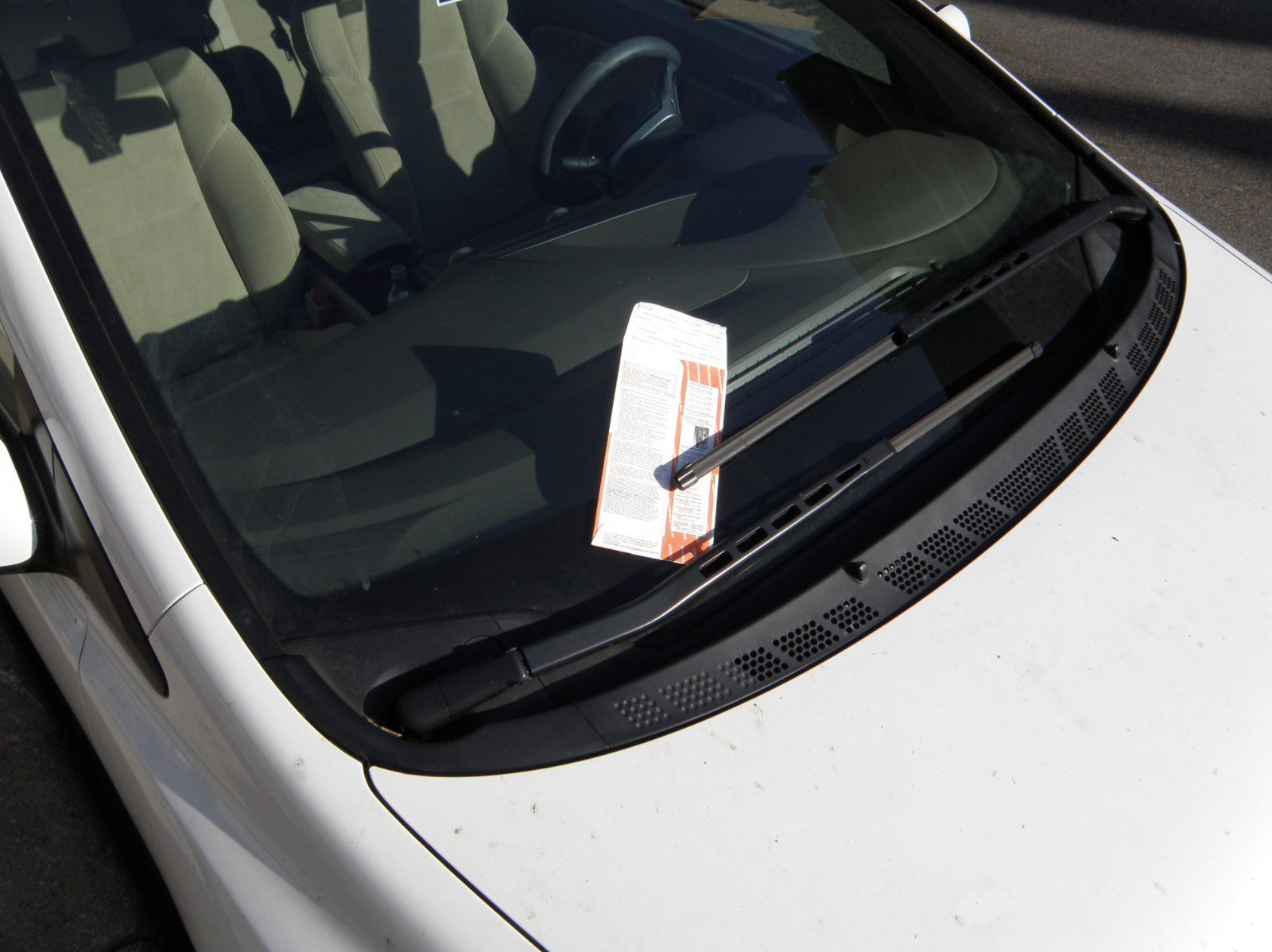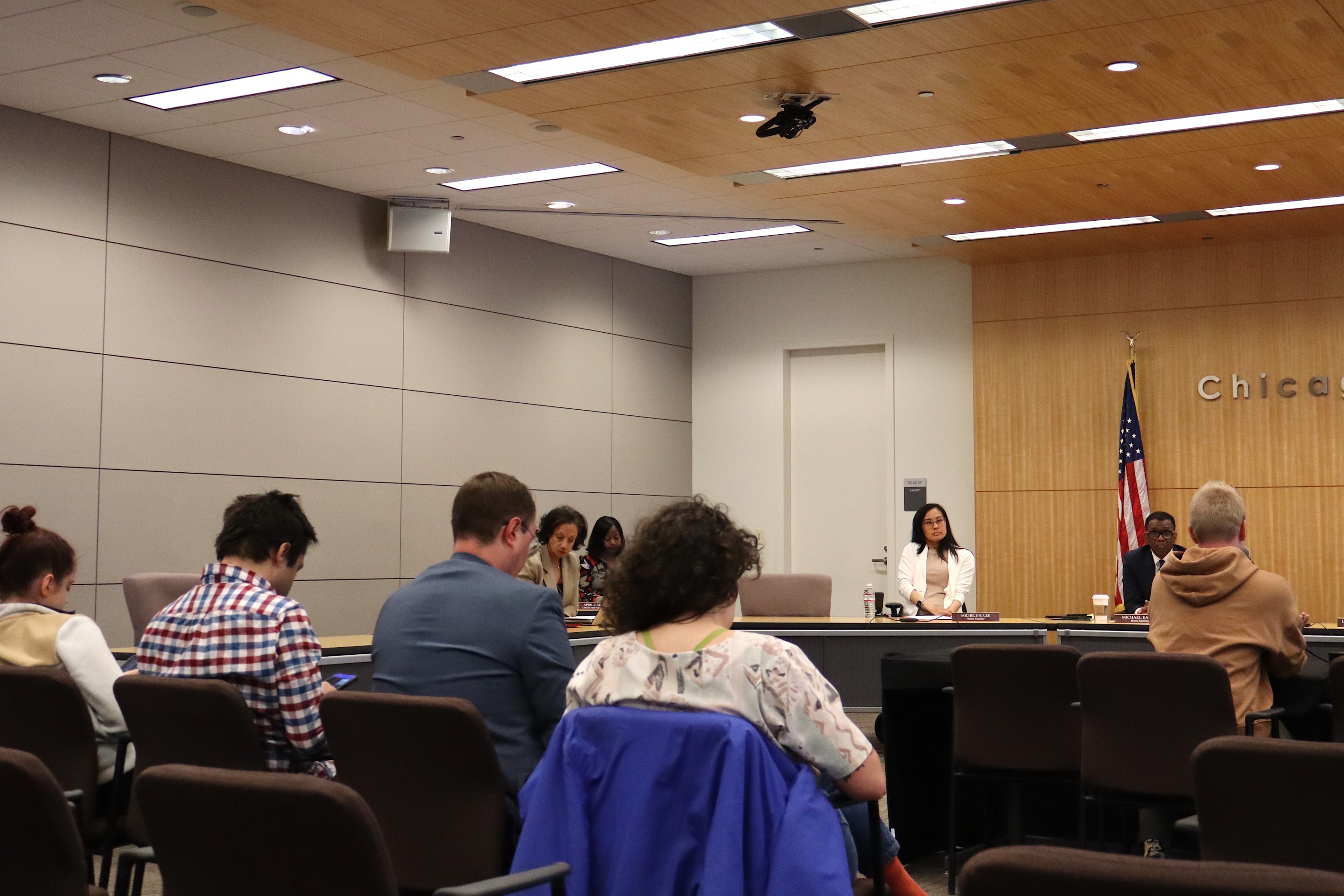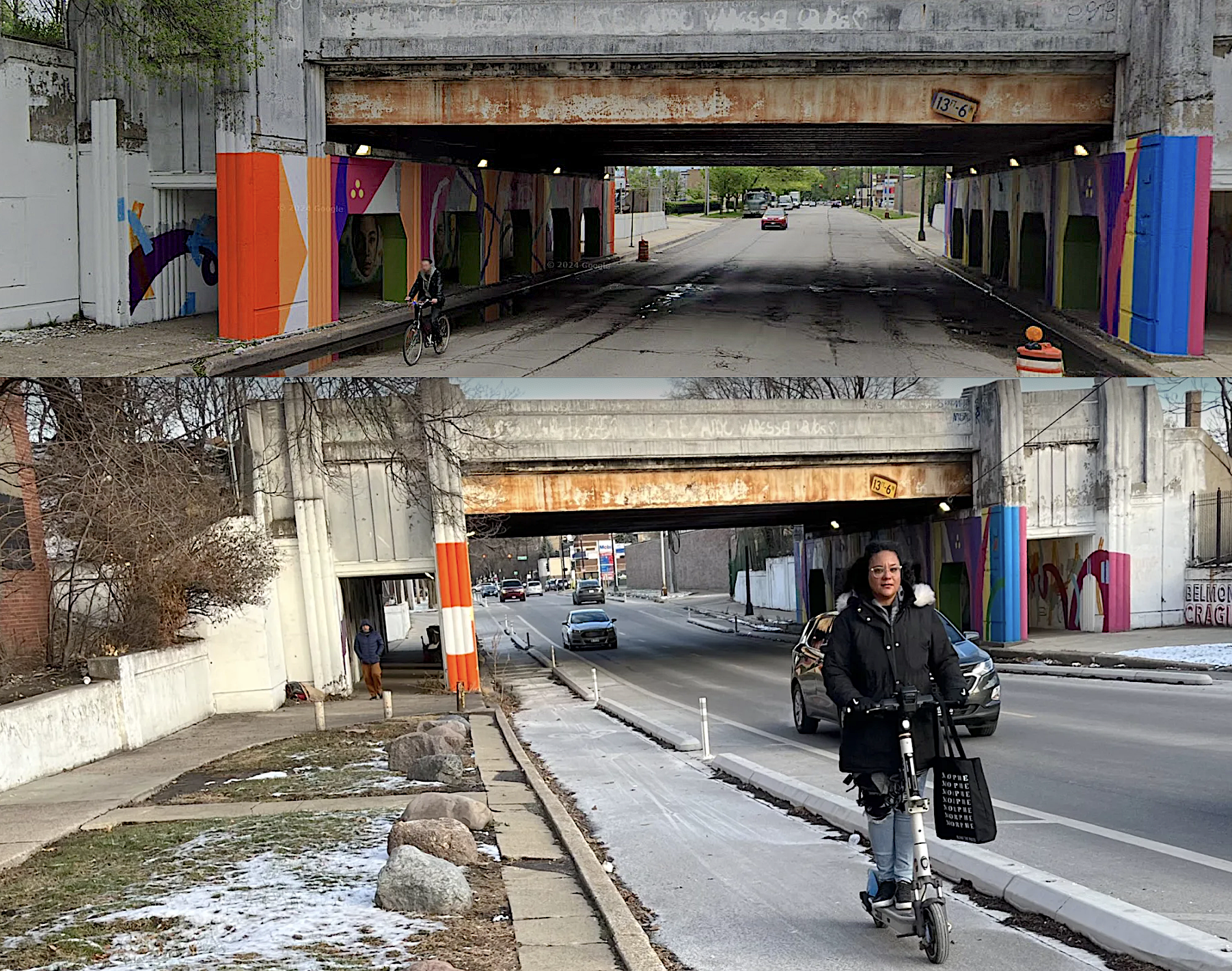Yesterday Mayor Lori Lightfoot's $16.7 billion 2022 Chicago budget which, thanks to money from federal COVID stimulus funds, contained relatively generous funding for social programs, passed the City Council in a 35 to 15 vote. Some notable aspects of the budget included a property tax increase projected to average about $38 per homeowner, as well as a groundbreaking universal basic income pilot, which could grant $500 a month to 6,000 low-income families to help them make ends meet.
Particularly relevant to Streetsblog's beat are reforms to the city's traffic fine structure intended to make it less regressive and more equitable, and increased funding for mental health services, which could be a step in the right direction for improving public safety on transit.
Traffic fine reforms
Under the new rules, residents making less than $38,640 a year will pay 50 percent less than the standard rate for traffic fines. Those Chicagoans will also have the opportunity to have their license or city sticker compliance tickets forgiven once they become compliant by purchasing a new city sticker or renewing their license plates.
Those motorists will only have to pay the tickets they’ve received in the past three years, minus late penalties. All other debt, such as booting, towing, and storage fees for impounded vehicles, will be forgiven. These programs will run until the end of 2023.
Meanwhile, the budget renews the 6 mph threshold for speed camera tickets that passed last year. Under the current structure, drivers speeding by 6-10 mph are fined $35, while those speeding by 11 mph or more receive $100 citations. This was despite an effort by 9th Ward alderman Anthony Beale to bring the threshold back to 10 mph. That would have once again allowed drivers in 30 mph zones to do 39 with impunity, a speed at which struck pedestrians almost always die.

Some other aldermen say the 6 mph rule seems to be disproportionately affecting Black and Latino residents. 44th Ward alderman Tom Tunney told WBEZ he received a preliminary map of where tickets have been issued this year. "Each of the aldermen should take a look at these cameras, and how it affects every community. My first glance at it — it particularly affects Black and Brown communities."
A spokesperson for the Chicago Department of Transportation, which installs and operates the cams told Streetsblog that neither CDOT, nor the Chicago Department of Finance, which handles ticketing, appears to have such a map, so it's unclear where Tunney got this info. However, Streetsblog Chicago will try to track down this data for future coverage.
Representatives from local sustainable transportation advocacy organizations applauded the ticketing reforms. "Reducing traffic fines for the city’s lowest income residents is an important step towards a fairer system," said Active Transportation Alliance spokesperson Kyle Whitehead. "We support establishing a full sliding scale for traffic fines and offering alternatives to payment for low-income residents, such as traffic school or restorative justice programs. Traffic enforcement should be used to make our streets safer and prevent serious and fatal crashes. It shouldn’t be used to raise revenue for non-transportation purposes, especially off the backs of the city’s most vulnerable residents."
Metropolitan Planning Council transportation director Audrey Wennink also endorsed the income-based fee discount. "It is a step in the right direction to recalibrate our transportation fee structures to be more aligned with people’s income." Wennink noted that this approach is supported by the recent Chicago Metropolitan Agency for Planning report -- A Transportation System that Works for Everyone: Improving Equity in Fees, Fines and Fares.
Oboi Reed, leader of the mobility justice nonprofit Equiticity, also said the income-based fee reduction is a positive change. "Equiticity supports a progressive fine structure, where poor people pay less and wealthy people pay more. This approach reflects the mayor's public commitment to equity."
As for the question of whether the 6 mph rule is disproportionately impacting African-American and Latino residents, Whitehead said. "We continue to call for the city to study the racial equity impacts of the photo enforcement program. The results should be shared publicly and used to inform changes to the program."
"Camera revenue should be used for traffic safety investments and programs, with a focus on high crash areas on the South and West Sides," he added. "The city’s highest crash corridors are disproportionately located in these areas, where poorly designed, super-sized streets encourage people to speed."
Reed said, "We do not support a punitive approach to solve [traffic violence], a problem disproportionately impacting Black and Brown communities, that is rooted in structural racism and multi-generational sustained disinvestment." He blamed street designs in communities of color that encourage speeding on "decades-long failures of a racist planning and transportation sector."
Mental health funding
Streetsblog Chicago has previously discussed how providing all citizens with adequate mental health support is crucial for creating a safer, more peaceful city, including on the CTA. So it's good news for transit riders that the new budget includes increased investment in local mental health clinics. According to WBEZ, the plan includes an additional $6 million for mental health, which will fund almost 29 new permanent positions at Chicago's five mental health clinics. The city says that will result in longer hours at the clinics and more services for teens.
Making it easier for all Chicagoans to get access to the mental health counseling and medication they need can only help address Chicago's pressing public safety challenges, including on public transportation.





